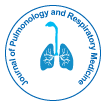开放获取期刊获得更多读者和引用
700 种期刊 和 15,000,000 名读者 每份期刊 获得 25,000 多名读者
抽象的
The Importance of Vaccines for Respiratory Health
Anang Endaryanto
Vaccines have been used for centuries to prevent infectious diseases and improve public health. One of the most significant benefits of vaccines is the prevention of respiratory diseases, which can cause serious illness and even death. In this article, we will discuss the importance of vaccines for respiratory health and how they work to protect us from respiratory illnesses. Respiratory illnesses are infections that affect the respiratory system, which includes the lungs, airways, and other structures involved in breathing. Respiratory diseases can be caused by bacteria, viruses, or other pathogens and can range from mild illnesses like the common cold to severe illnesses like pneumonia.
Vaccines work by stimulating the body's immune system to recognize and fight specific pathogens. When a vaccine is administered, it contains a small amount of a weakened or inactive form of the pathogen. The body's immune system then recognizes the pathogen and produces an immune response, which includes the production of antibodies that can recognize and fight the pathogen. The immune response generated by vaccines is similar to the response that occurs when the body is naturally exposed to a pathogen. However, vaccines are much safer than natural exposure because they contain only a small amount of the pathogen and cannot cause serious illness. There are several vaccines available that protect against respiratory illnesses. Some of the most common vaccines include the influenza vaccine, the pneumococcal vaccine, and the pertussis vaccine.

 English
English  Spanish
Spanish  Russian
Russian  German
German  French
French  Japanese
Japanese  Portuguese
Portuguese  Hindi
Hindi